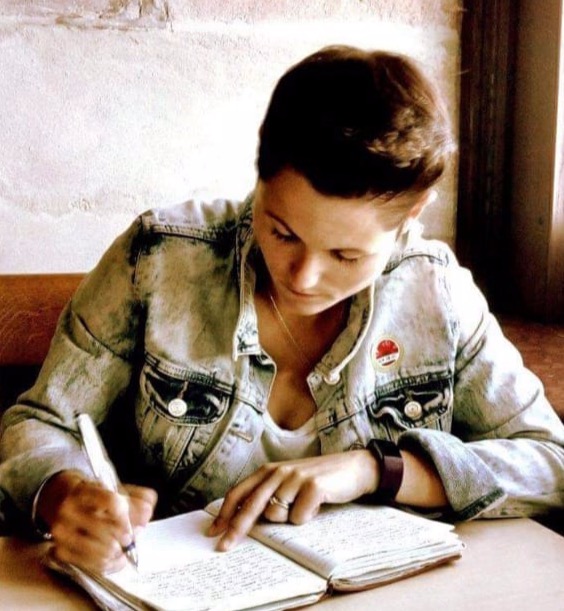'They Landed by Moonlight:' Women Agents of the SOE
- Ash Percival-Borley

- Jan 31, 2021
- 3 min read

'The low guttural hum of a lone aircraft could be heard somewhere over southern France. Dropping to 400ft, a small figure fell from the plane, their static line parachute deploying faithfully as they plummeted into the cold darkness of Nazi-occupied Europe. Trained in close combat, codes, deciphering and explosives, the figure was also a crack shot with a pistol and could kill silently with their bare hands if the tactical situation dictated it. Such a character seems at home as the protagonist of an action film. Yet, this is no classic war film or a scene from the new James Bond movie, it is a scene taken from the past; a bleak morning in February 1944. On that morning as the figure landed rather ungraciously and removed both their parachute and overalls, a brunette woman in a camel-hair overcoat emerged. She unbound her ankles to reveal three-quarter inch heels and was met by a French resistance leader and his men as part of the reception committee. She immediately stated, "isn't it time we left this fanfare?". Mme Andreé aka Nancy Wake was back in France.'
It is seemingly natural for the reader to initially assume a male agent or spy, had you not been influenced by the title of this post, before realising the New Zealander, Nancy Wake is very much a woman. Nancy was one of many women in Britain who were mobilised in a diverse range of roles during the Second World War. As many as 43,000 women volunteered for the Women's Auxiliary Airforce (WAAF), Women's Royal Naval Service (WRNS), the Auxilliary Territorial Service (ATS) and the First Aid Nursing Yeomanry (FANY) in 1939, while other women also took on various roles for the general war effort from postal workers and bus conductors to air raid wardens, even ferrying spitfires and shooting down German bombers in Anti-Aircraft units. Nancy, however, was part of the Special Operations Executive (SOE) a clandestine organisation that was set up by Churchill in 1940 to ‘set Europe ablaze’. They were to be the masters of sabotage, subterfuge, and in some cases assassination in occupied Europe. The SOE supported local resistance groups with financial support, as well as providing weapons, military equipment and highly trained field agents to setup, lead and support local resistance circuits. Early in the War, the SOE realised women could be tactically beneficial working in occupied territory, being able to move around much more freely and with less suspicion than their male counterparts. Initially, however, they were only employed as couriers, delivering messages, money and items to the resistance circuits, however, wartime necessity allowed these extraordinary women to take on more specialist roles and take on positions of leadership. They became wireless operators, the first of which was the dutiful and brave Noor Inayat Khan, and even established resistance circuits like the indefatigable Virginia Hall, while Nancy Wake and Pearl Witherington coordinated and managed thousands of French and Spanish Maquisards troops, even leading them in combat missions.
These women wore trousers with their lipstick, fired their Sten guns from the hip while shouting orders to their troops. They battled disability and sexism to become agents, they pushed themselves to their physical and mental limits to help allied airmen escape over the Pyrenees or cycle over 200 miles to send important messages, they also resisted the brutal Gestapo interrogations. They lived to see D-Day, they survived to be liberated from concentration camps and some were shot, gassed and starved to death. They took on extraordinary roles in an era where it was not socially or culturally acceptable to do so. With the decision in 2018 to allow women into combat roles in the British Army, the women of the SOE can be seen as playing a part in allowing me and my fellow female soldiers to take on the modern role of the combat soldier on an international stage. For that, I believe the women agents of the SOE deserve to have their story told.
This will be the start of a series of blogs on the women of the SOE, to tell their story to a wider audience. I hope you’ll join me over the next few weeks and explore their stories with me!
N.B Photograph taken as a still from the film 'Female Agents, 2008, directed by Jean-Paul Salomé.
.png)



Excellent post! I look forward to reading more.
Fascinating and well written , we owe these ladies to never forget them .